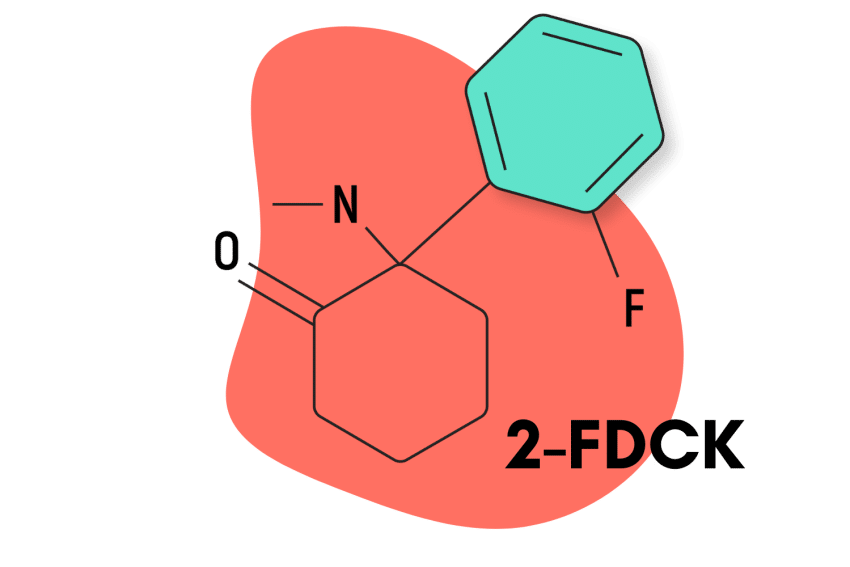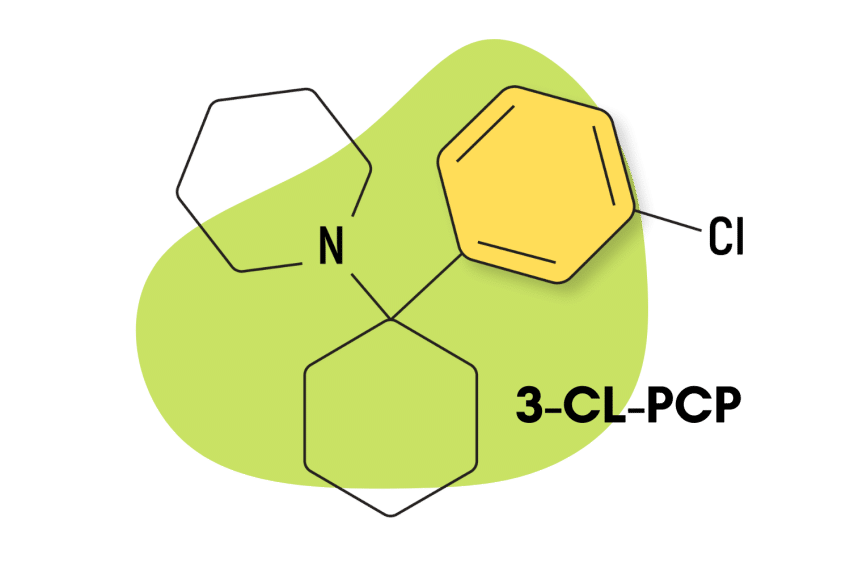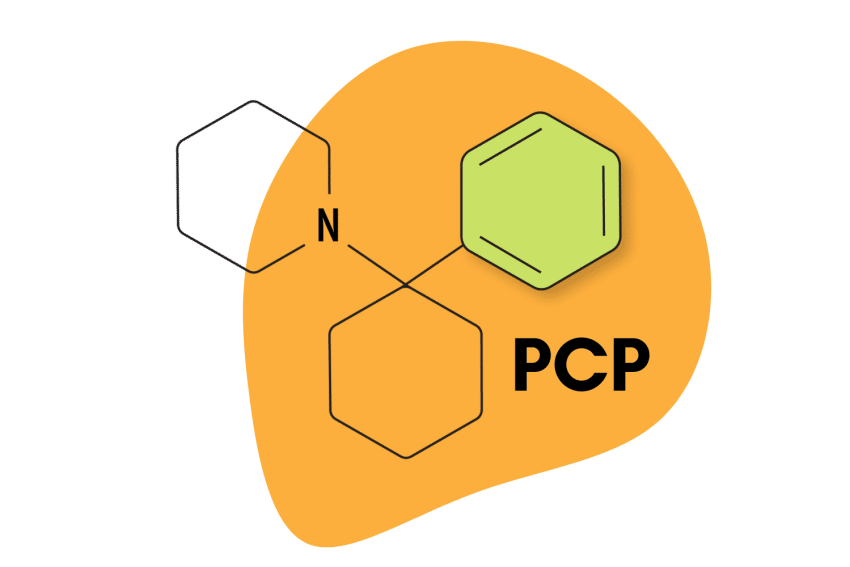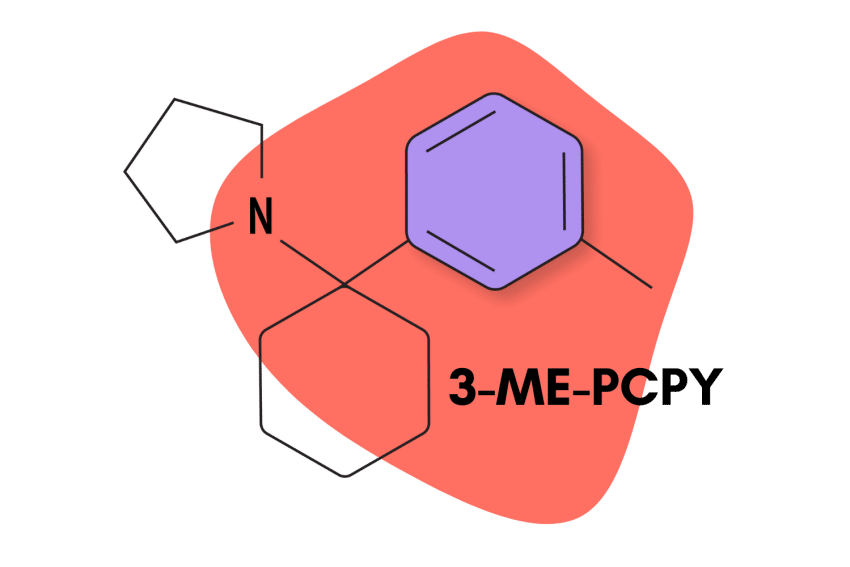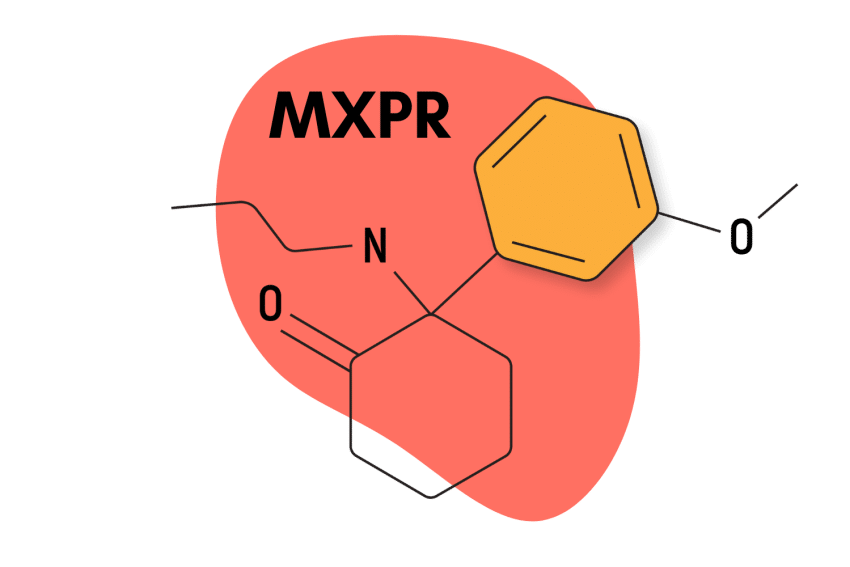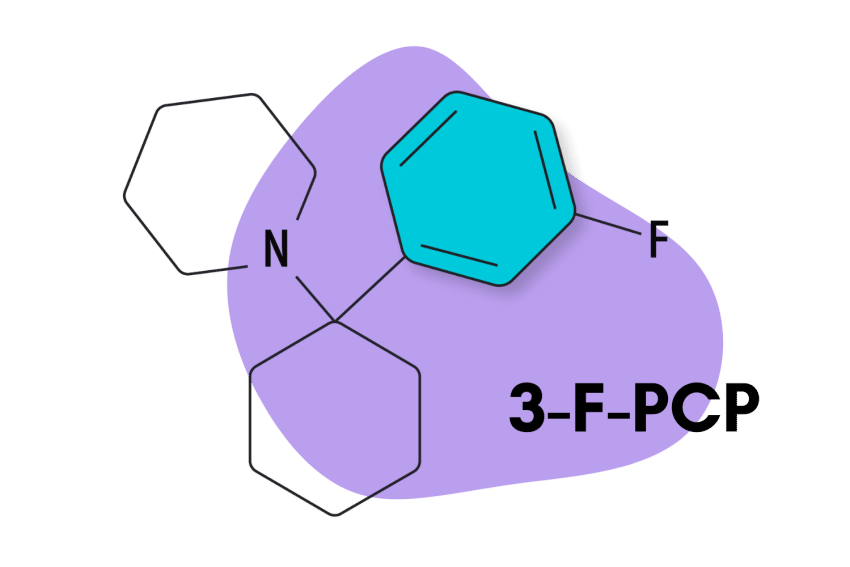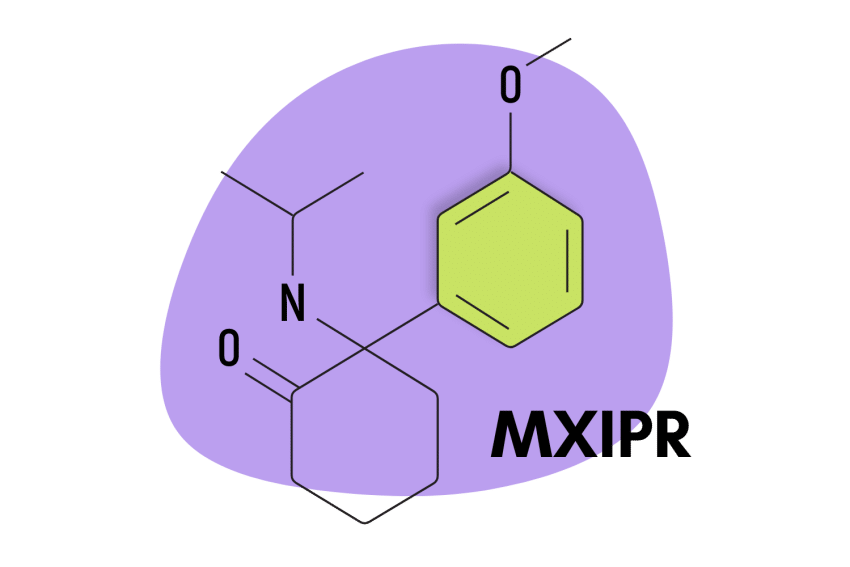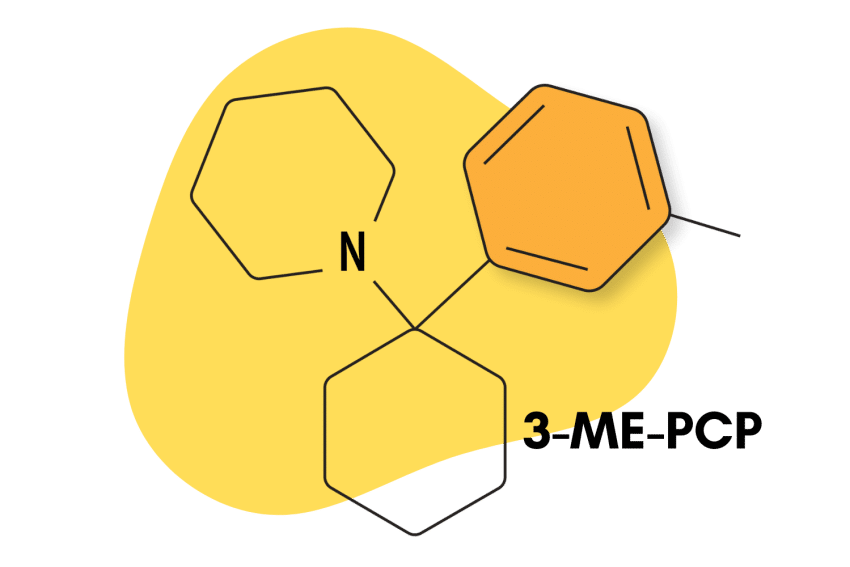Thinking About Trying DCK? Read This Article First
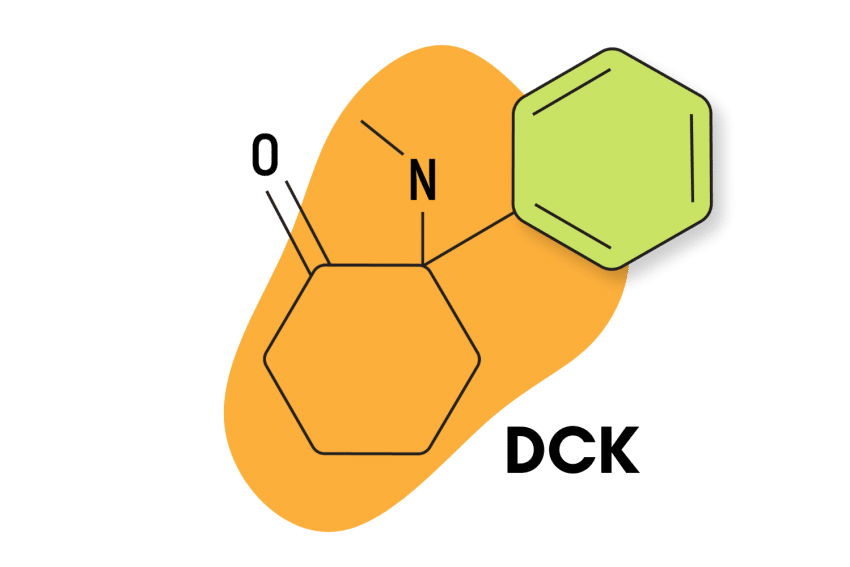
What is DCK (Deschloroketamine)?
DCK — also known as deschloroketamine — is a member of the arylcyclohexylamine family. This class of compounds produces potent psychedelic, dissociative, and to a lesser degree, stimulant effects.
DCK has been sold as a recreational designer drug in unregulated online markets. It was relatively unknown until recently but is quickly gaining popularity among users in the UK and the United States due to its similar effect profile to ketamine.
DCK (Deschloroketamine) Specs
| Chemical Name | 2′-Oxo-PCM |
| Level of Risk | Moderate |
| Other Names | Deschloroketamine |
| Most Common Side Effects | Psychosis, Seizures, Anxiety, Paranoia, Agitation, Confusion. Increased heart rate and blood pressure, Palpitations, Chest pain, and Difficulty breathing. |
| Duration of Effects | Three to four hours |
| Estimated Threshold Dose | Less than 5 mg |
| Common Dose | 15 to 25 mg |
| Legality/Status | Research Chemical |
| PubChem ID: | 437168 |
| CAS# | 7063-30-1 |
Tripsitter Safe DCK Guidelines
- 🐍 I understand why arylcyclohexylamines should be treated with respect
- ⚖️ I’m familiar with the laws for arylcyclohexylamine class in my country & state
- 🍄 I’m familiar with and confident in the dose I’m taking
- 🧪 I’ve tested a sample of the substance I’m using with a drug-testing kit
- 💊 I’m not mixing any medications or other substances with DCK
- 🏔 I’m in a safe & comfortable environment with people I trust
- 🐺 One of the members of my group is responsible and sober (AKA a trip sitter)
- ⏳ I have nothing important scheduled for after the trip
- 🧠 I’m in a sound & healthy state of mind
- ❤️ I don’t have any underlying health issues — don’t take DCK if you have underlying heart, neurological, or psychiatric disorders
- 👭 Use the buddy system — DCK can remove your inhibition and allow you to make unsafe decisions, always stay with people you trust, and never go out alone
What Are The Effects of DCK (Deschloroketamine)?
The general conclusion in psychonaut circles is that DCK lies on the ‘non-stimulating’ side of the spectrum when compared to other arylcyclohexylamines. The general effects profile of DCK thus seems to be more in the vein of ketamine and farther away from the more ‘active’ compounds like 3-MeO-PCP, O-PCE, and PCP.
While keeping this distinction in mind, let’s take a look at the subjective effects online users have associated with DCK.
Physical Effects of DCK:
Pain relief, Spontaneous physical sensations, Motor control loss, Muscle relaxation, Nausea, Sedation, Perception of bodily lightness, Physical autonomy, Physical euphoria, Spatial disorientation, Dizziness, Tactile suppression, Optical sliding, Decreased libido, Orgasm suppression or enhancement, Tactile and visual disconnection (also known as a “k-hole”), Hallucinations, Synaesthesia,
Cognitive Effects of DCK:
Anxiety suppression, Disinhibition, Compulsive redosing, Conceptual thinking, Creativity enhancement, Déjà vu, Depersonalization, Derealization, Dream potentiation, Cognitive euphoria, Memory suppression, Ego death, Amnesia, Immersion enhancement, Increased music appreciation, Analysis suppression, Introspection, Mania, Time distortion, Thought deceleration, Existential self-realization, Unity and interconnectedness
Visual Effects of DCK:
Double vision, Frame rate suppression, Pattern recognition suppression, Visual acuity suppression, Perspective distortions, Environmental cubism, Environmental orbism, Scenery slicing
Research Involving DCK
User-generated information might lack scientific rigor, but it’s usually quite adept at sketching out all the little subtleties in a dissociative experience. In reality, if one wants to understand the difference between two types of drugs in terms of the subjective feelings they might produce, user-generated information, the type used by psychonauts, is the way to go.
However, that’s not to say that scientific studies can’t help us understand subjective experience.
There aren’t many studies on DCK, but one 2022 mice study by Kuchar and Co. examined its pharmacodynamics and its behavioral effects when compared to ketamine [1]. In general, the study found both drugs to produce comparable effects, but some notable differences were present. DCK was found to “rapidly cross the blood brain barrier, with maximum brain levels achieved at 30 min and remaining high at 2 hours after administration. Its antagonist activity at NMDA receptors is comparable to the ketamine but with DCK being more potent.”
It was also found that “DCK had more pronounced stimulatory properties than its counterpart” and that “DCK is generally more active and has a slightly slower pharmacokinetic profile than ketamine, which is consistent with its reported longer duration of action.”
The overall conclusion states that both compounds are quite similar, but DCK it’s important to note that DCK appears to be of higher potency, produces more stimulation, and has a longer duration of effects than ketamine.
Is DCK (Deschloroketamine) Safe? Risks & Side-Effects
Although we weren’t able to find any studies on the safety profile of DCK, its close pharmacological similarity with ketamine likely means they share comparable risks.
Ketamine use has been associated with a number of physical risks, the most prominent being:
- Tachycardia (increased heart rate)
- Hypertension (increased blood pressure)
- Slowed or shallow breathing
- Nausea and vomiting
- Abdominal pain
- Muscle damage
- Seizures
- Allergic reactions
- Bladder pain/damage
- Psychosis
Is DCK (Deschloroketamine) Addictive?
Any psychoactive drug can result in addiction disorders. The escape from reality some users seek can become habit-forming as they try to escape the stresses of their daily lives.
Compared to compounds like opiates and amphetamine stimulants, arylcyclohexylamines like DCK are considered to have a higher threshold for causing physical addiction — which is characterized by the development of withdrawal symptoms whenever the effects of the substance wear off.
Despite taking more time to produce physical dependence than common drugs of abuse, DCK is still addictive.
References
- Kuchar, M., Stefkova-Mazochova, K., Dehaen, W., Vyklicky, L., Hajkova, K., Jurasek, B., & Palenicek, T. (2022). Pharmacokinetic, pharmacodynamic, and behavioral studies of deschloroketamine (DCK) in Wistar rats. Toxicologie Analytique et Clinique, 34(3), S41-S42.

